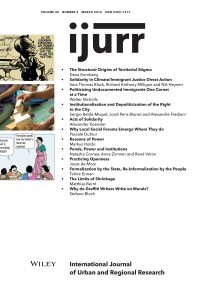This essay reflects on the conceptual underpinnings of research on ‘shrinking cities’ over the last decade. It criticizes the definition of shrinkage in terms of urban population losses and argues that the state-of-the art research on ‘shrinking cities’ suffers from a misleading conceptualization of shrinkage which forces essentially different urban constellations into a universal model of ‘shrinkage’. Four problems of this procrustean bed are discussed in detail: methodological pitfalls of threshold definitions of urban shrinkage; empirical contradictions; an absence of attention to scalar interrelations; and insufficient understanding of cities as historical processes. The essay ends with suggestions for a widened conceptualization of shrinkage and a new research agenda.

